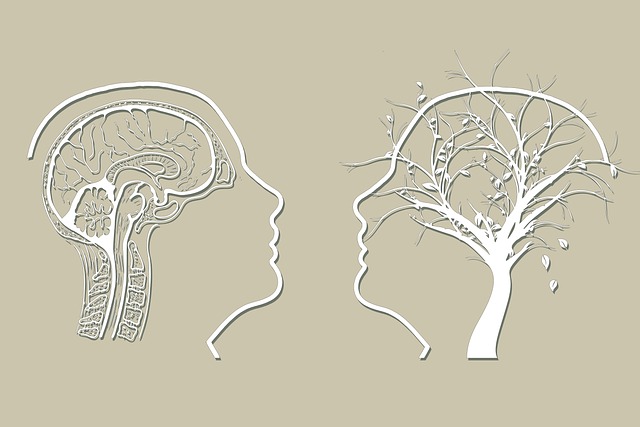Para los adultos mayores hispanohablantes, las barreras culturales y lingüísticas a menudo impiden el desarrollo de su inteligencia emocional. La terapia adaptada culturalmente, combinada con capacitación en habilidades sociales, mejora su capacidad para manejar emociones, interactuar socialmente y formar conexiones significativas. Esta intervención fomenta una vida más activa y comprometida dentro de la comunidad, abordando necesidades específicas como la prevención de la depresión y creando espacios seguros para la expresión emocional, todo ello con un enfoque culturalmente sensible que respeta sus tradiciones. (Therapy for Elders Spanish Speaking)
Emotional intelligence (EI) is a vital tool for navigating life’s challenges, and its benefits are particularly impactful for older adults. This article explores EI, focusing on how it can empower elders, especially those from Spanish-speaking communities, to lead more fulfilling lives. We delve into the barriers that often hinder emotional expression within these communities and offer valuable insights into therapy as a powerful strategy for enhancing EI. By understanding these aspects, we aim to promote better mental health outcomes for a diverse range of individuals.
- Understanding Emotional Intelligence and Its Impact on Elders
- Barriers to Emotional Expression in Spanish-Speaking Communities
- Strategies for Enhancing Emotional Intelligence through Therapy
Understanding Emotional Intelligence and Its Impact on Elders

Emotional intelligence (EI) refers to an individual’s ability to recognize, understand, and manage their own emotions as well as recognize, interpret, and respond appropriately to the emotions of others. For elders, particularly those who may face language barriers or cultural differences, understanding and developing EI can have profound impacts on their daily lives and overall well-being.
Elders in our communities, especially Spanish-speaking individuals who may require therapy for Elders Spanish speaking, can greatly benefit from practices that foster coping skills development and stress management. Social skills training plays a crucial role here by helping them navigate social interactions with ease, fostering meaningful connections, and promoting emotional resilience. By enhancing their EI, elders can improve communication, build stronger relationships, and effectively cope with life’s challenges, ensuring they remain active, engaged, and appreciated members of society.
Barriers to Emotional Expression in Spanish-Speaking Communities

En las comunidades de habla española, existen barreras culturales y lingüísticas que pueden dificultar la expresión emocional, especialmente en personas mayores. La terapia para adultos mayores de origen español a menudo se enfrenta al reto de superar estas barreras para fomentar una comunicación abierta y honesta. Los estereotipos y normas sociales que promueven la reserva emocional pueden hacer que los individuos duden en compartir sus sentimientos, lo que impide el desarrollo de la inteligencia emocional.
La falta de acceso a servicios de salud mental culturalmente sensibles es otro obstáculo significativo. La crisis de intervención y las estrategias de construcción de empatía deben adaptarse para atender las necesidades únicas de esta población. Programas específicos que aborden la depresión prevención y proporcionen espacios seguros para expresar emociones pueden ser transformadores. Es crucial adaptar las prácticas terapéuticas para que sean inclusivas y respetuosas con las tradiciones culturales, permitiendo así un proceso de sanación más efectivo.
Strategies for Enhancing Emotional Intelligence through Therapy

Many individuals, especially Spanish-speaking elders, can benefit from therapy as a powerful tool to enhance emotional intelligence. This process allows them to explore and understand their emotions, providing valuable insights into managing and regulating feelings effectively. Through structured sessions, therapists can guide clients in developing strategies for emotional regulation, which is crucial for maintaining mental well-being. By encouraging open dialogue and creating a safe space, therapy facilitates the exploration of past experiences and their impact on current emotional responses, fostering self-awareness.
In therapy, Spanish-speaking elders can work on improving self-esteem, a key aspect of emotional intelligence. Building self-confidence and challenging negative thought patterns can help them navigate life’s challenges with resilience. Additionally, therapy sessions can teach valuable techniques for burnout prevention, ensuring individuals maintain a healthy balance in their personal and professional lives. These strategies, combined with cultural sensitivity, enable therapists to cater to the unique needs of Spanish-speaking elders, enhancing their emotional intelligence and overall quality of life.
Emotional intelligence is a vital tool for navigating life’s challenges, and this is especially true for elders. By understanding and managing emotions, individuals can improve their overall well-being and relationships, regardless of cultural background. For Spanish-speaking communities, addressing barriers to emotional expression through tailored therapy can be transformative. Effective therapy provides a safe space to explore and express feelings, fostering emotional intelligence that enhances quality of life. This article has highlighted the significance of EQ development in elders, especially within specific cultural contexts, and offered strategies like therapy as potential game-changers for improving mental health among Spanish-speaking populations.














